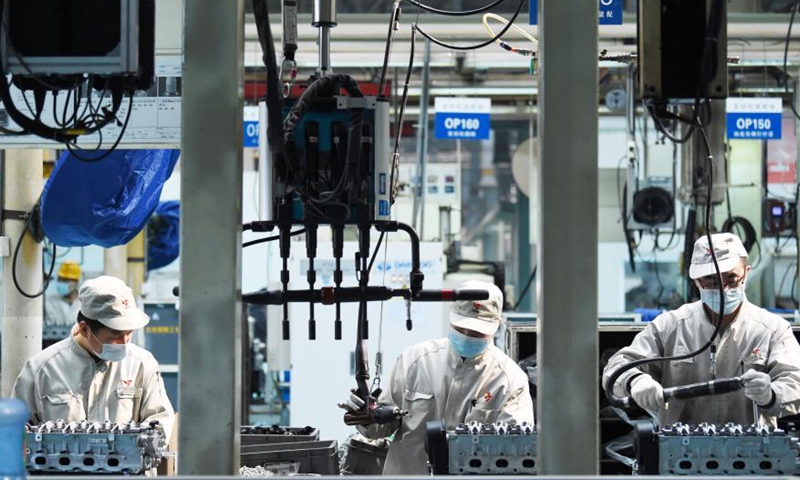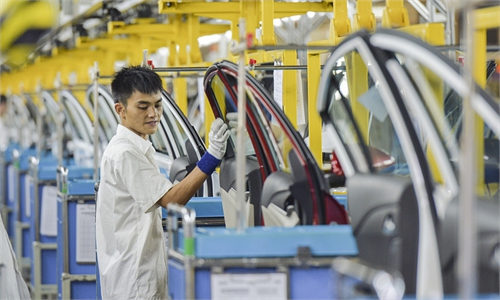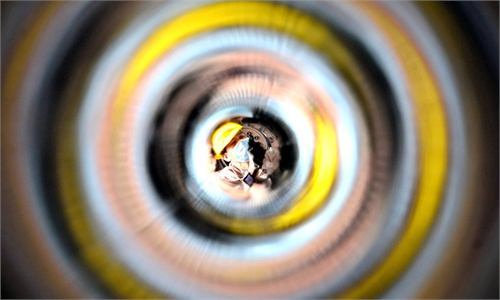
People work at a workshop of Harbin Dongan Automotive Engine Manufacturing Co., Ltd. in northeast China's Heilongjiang Province, Feb. 25, 2021. In January 2021, the company's product sales and sales revenue increased by 10.79 percent and 18.34 percent year on year respectively. (Xinhua/Wang Jianwei)
China's manufacturing activity remained in expansion territory in February, but at a slower pace compared with January, due to the impact of the Spring Festival holidays and COVID-19 flare-ups earlier this year, said analysts.
The official manufacturing Purchasing Managers' Index (PMI) fell from 51.3 in January to 50.6, data from the National Bureau of Statistics (NBS) released on Sunday showed, with supply and demand continuing to expand, but at the slowest level since May 2020.
"The Spring Festival holidays, which fell in the middle of February, had a great impact on the production and business of enterprises, reducing the vitality of the manufacturing sector," said Zhao Qinghe, NBS senior statistician.
The production index and new order index were down 1.6 and 0.8 points respectively from January. But overall manufacturing activity remained stable. In particular, production and new orders in medicine, electrical machinery and equipment sectors remained robust, Zhao said.
Major enterprises' operations were stable and some expect hot sales after March, the statistician noted, adding some factories also reported labor shortages and higher labor costs.
The festival factor, however, slowed manufacturing work for foreign trade in February, as the indices of new orders for exports and imports both declined.
The prices of raw materials continued to surge in February, imposing a greater burden on factories. Production by petroleum refineries, ferrous metals smelters and fabricators, and makers of metals, electrical and mechanical equipment showed the highest growth, said Zhao.
Liu Xuezhi, a senior macroeconomics expert at the Bank of Communications, noted that the strict virus containment measures to reduce massive population movements over the holidays and combat COVID-19 flare-ups earlier this year also had an economic impact.
Although China encouraged migrant workers to stay in their cities of work put during the holiday and factories offered bonus payments for those who did, Liu said it was hard to make up for the seasonal loss.
"But this will not change China's economic rebound trend, as the country has basically emerged from the gloom of the COVID-19 outbreaks. With a clear global economic recovery this year, there is sure to be a rising need for Chinese goods," Liu told the Global Times, adding that domestic demand will continue to recover in March.
As of Sunday, the Chinese mainland had reported zero new local COVID-19 cases for 22 consecutive days.
The NBS survey of the services sector reported a one-point decline to 51.4, but sectors related to consumption, such as retail, catering and entertainment, saw better performances than January as Chinese spend a lot during the holidays.




